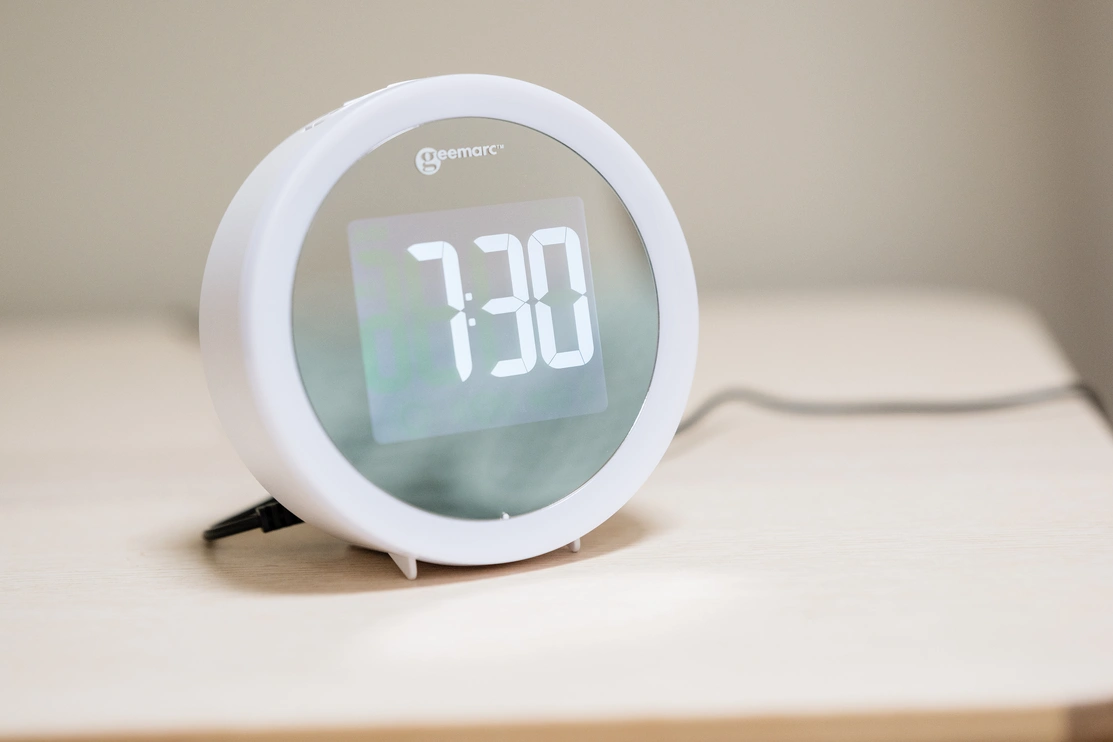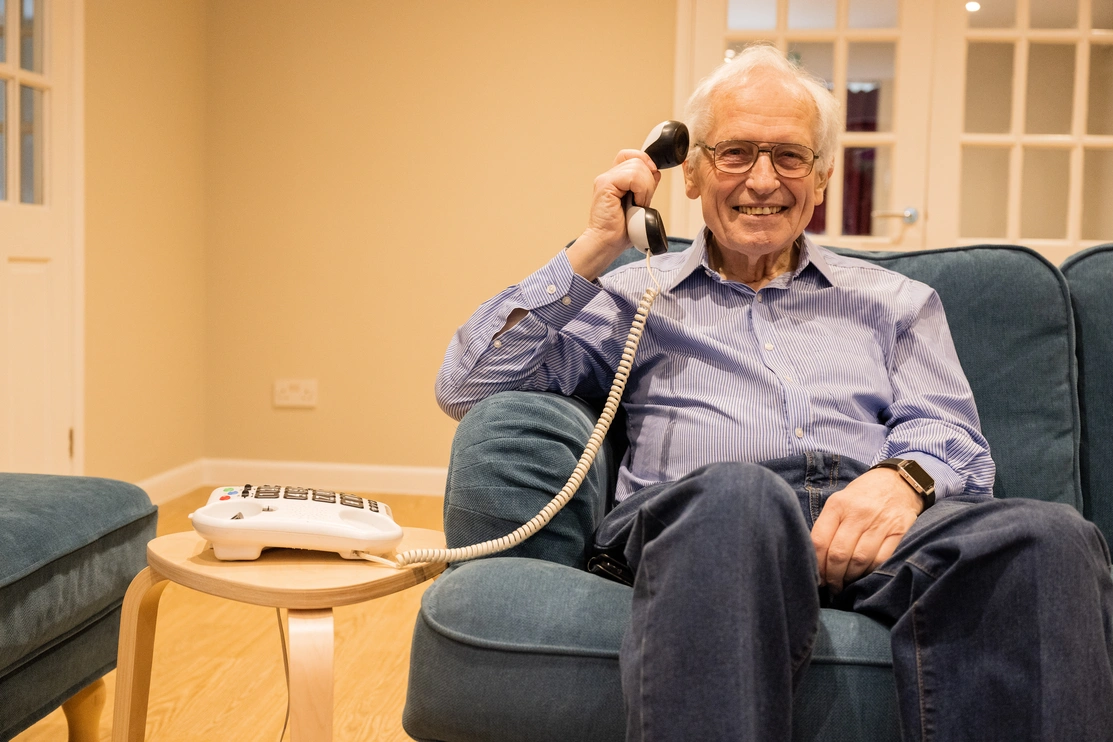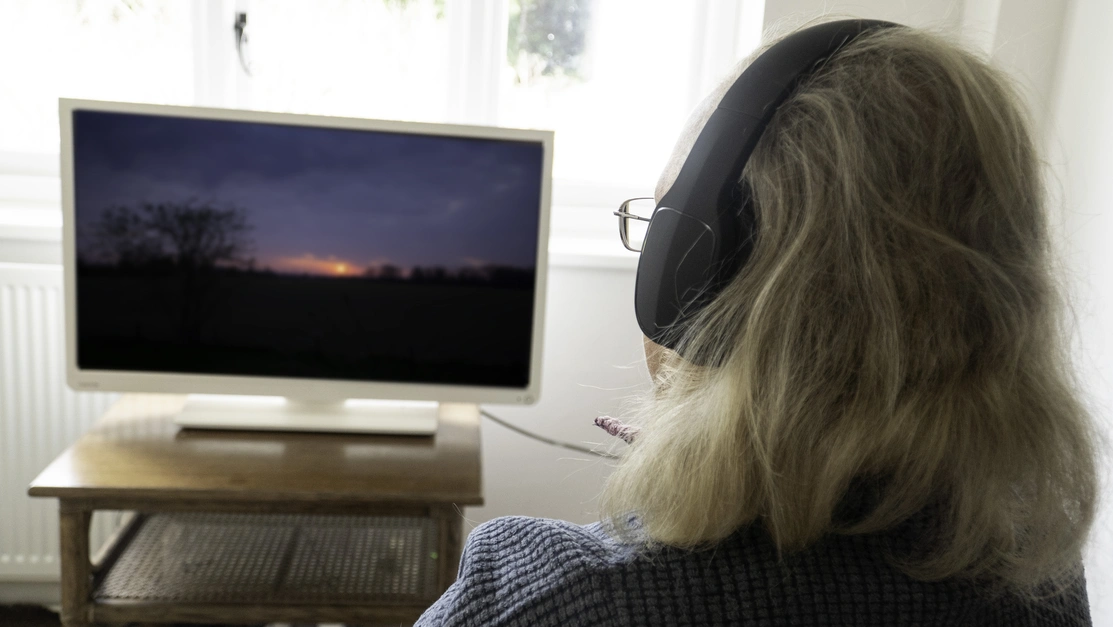Technology that can help
If you have hearing loss, hearing devices can make a big difference to your quality of life at home.

Hearing your wake-up alarm in the morning when you have hearing loss can be a challenge. As a hearing aid user, you will typically remove your aids for sleeping, meaning you may not hear your alarm no matter how loud it is set.
There are specialist alarm clocks for use in the home which offer extra loud sounds, flashing lights and vibrating pads that are placed under your pillow.
Depending on the severity or type of hearing loss you may have, there are different models available to suit these needs or can be personalised to your specific requirements.

Phones designed for hearing loss, whether it is a smartphone or landline device, are designed to make talking on a phone easier.
Specially designed landline phones can offer a range of amplification (depending on your severity and type of hearing loss) and as well as additional special features.
Most landline telephones for hearing loss are hearing device compatible and can be used with hearing aid or implanted device which has the loop or T-setting. The loop is situated in the earpiece and is designed to give the user the best sound through their hearing device.
Some have extra loud sounds, show words on a screen (called captions), or let people type and read messages. Others work with hearing aids or send calls to a smartphone. These phones can help you stay in touch with family, friends, and doctors more easily if you have hearing loss.
Other features may include extra loud ringer, tone control and special features such as large sized buttons. You can also source additional products to help with your landline telephone such a visual call indicator or amplifier to help make the sound louder.
Most smartphones today are compatible with hearing devices also. They usually have additional accessibility features or a loop setting to connect your hearing aid to your smart device.
There are several useful apps for hearing loss which could also help you to make the most of your smart device. Read our webpage to find out more.

Assistive devices for watching and listening to television can help you to enjoy your favourite programme or movie, if you have hearing loss.
A TV listener can make the sound louder by sending the sound straight to hearing aids via the loop setting on your hearing aid.
Depending on your severity and type of hearing loss, some use wireless headphones, while others connect to a smartphone or tablet. They can make it easier and clearer to hear the television without disturbing your family by turning up the volume higher.
Smoke alarms for people with hearing loss use flashing lights, vibrating pads, or very loud sounds to warn about fire.
Some connect to a special pager or send alerts to your smartphone. Others can shake your bed to wake someone up if smoke is detected at night.
Depending on where you live in the UK, may be able to get these alarms for free through your local fire and rescue service, or sensory support team. Your local fire station may also be able to carry out a home safety visit to provide guidance and advice to ensure you feel safe when at home.
There are modern technologies available for the home which combine several assistive devices into one smart home system. Receivers and transmitters placed around the home connect to different device e.g. telephones, smoke alarms, baby monitors and even your cooker.
Whenever one of these devices sound its alert, the smart system will connect to your mobile phone, tablet, or paging system with a visual clue.
It is important to conduct research into what is available and find a system that is meets your individual needs and is compatible with your hearing aid.
Choosing the right equipment for you to use in your home will be based on your individual needs and your type and severity of hearing loss.
Your audiologist or local sensory support team can provide advice and support about what device(s) may work for you effectively in your home.
Sensory support teams can provide equipment free of charge, but this is dependent on eligibility criteria and availability in your local community.
There are some technology providers that offer try before you buy schemes. This means you can test products before purchasing them. This will be dependent on where you live in the UK and which providers may offer this service.
Whatever you choose to do, with the right hearing technology, your life at home could be made better by making it easier to stay connected, increasing confidence and helping you to feel safe.